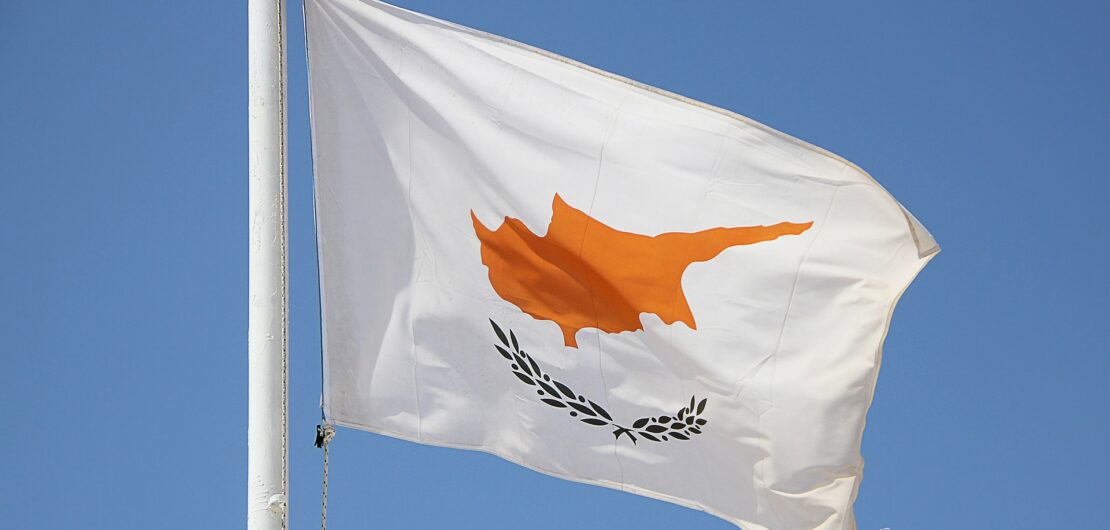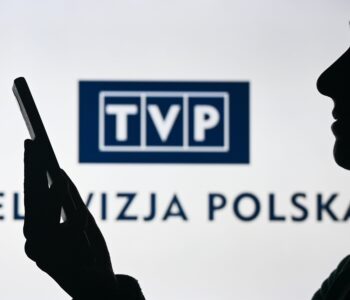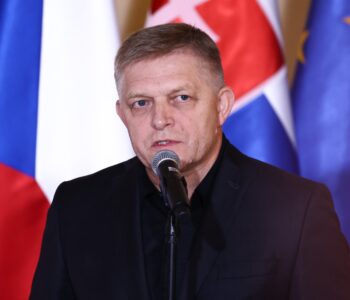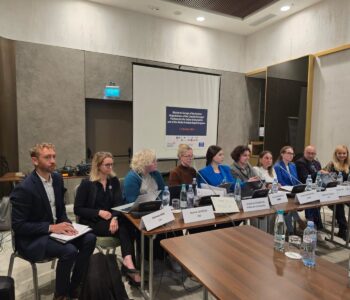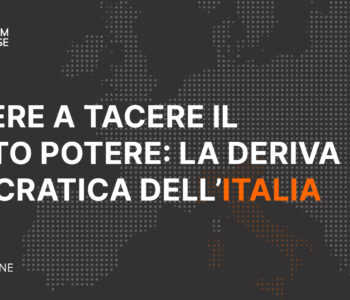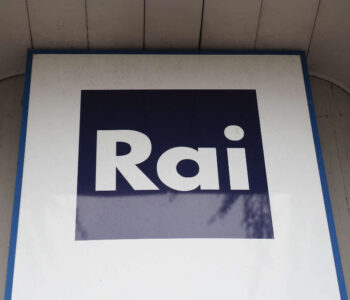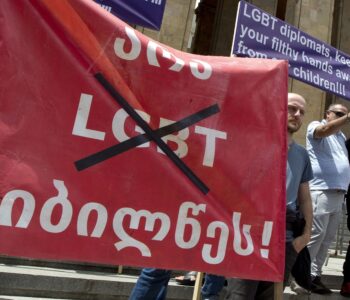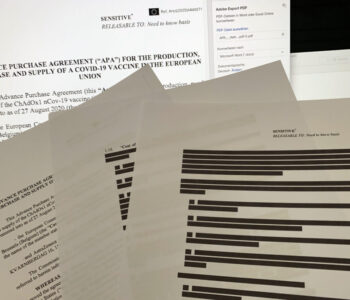პრესის თავისუფლება და ჟურნალისტების უსაფრთხოება საფრთხეშია, იზრდება პოლარიზაცია და შიშის კლიმატი – პრესის თავისუფლების მისიის მთავარი მიგნებები
ევროპის საბჭოს ჟურნალისტთა უსაფრთხოების პლატფორმის პარტნიორმა ორგანიზაციებმა და მედიის თავისუფლების სწრაფი რეაგირების (MFRR) კონსორციუმის წევრებმა დაასრულეს ფაქტების დამდგენი მისია საქართველოში. მისიის მიზანი იყო ინფორმაციის შეგროვება საქართველოში გამოხატვის თავისუფლებისა და მედიის თავისუფლების ვალდებულებების შესრულების ნაწილში, მათ შორის, მიმდინარე საარჩევნო კამპანიასთან დაკავშირებით.
ეს განცხადება წარმოადგენს მისიის შუალედურ დასკვნებს.
ჩვენ, პრესის თავისუფლების, გამოხატვის თავისუფლების და ჟურნალისტების საერთაშორისო ორგანიზაციებმა, ახლახანს დავასრულეთ ორდღიანი მისია საქართველოში. მისიის დროს ჩვენთვის აშკარა გახდა, რომ საქართველოში პრესის თავისუფლებისა და, ზოგადად, ადამიანის უფლებების მდგომარეობა მკვეთრად გაუარესებულია. ასევე ნათელი გახდა, რომ საქართველოში გამოიყენება მექანიზმების და ბერკეტების ფართო სპექტრი დამოუკიდებელი და კრიტიკული აზრის დისრედიტაციისა და ჩახშობისათვის.
გვინდა, კიდევ ერთხელ გამოვუცხადოთ ჩვენი სრული მხარდაჭერა და სოლიდარობა ჟურნალისტებს, მედიას, პრესის თავისუფლებაზე მომუშავე და სამოქალაქო საზოგადოების ორგანიზაციებს. ჩვენ შეძრწუნებული ვართ იმით, რაც მოვისმინეთ მისიის ფარგლებში პრესის თავისუფლებისა და გამოხატვის თავისუფლების, ასევე ჟურნალისტების უფლებების დაცვასთან დაკავშირებით.
მედიაში არსებული მდგომარეობა წინასაარჩევნო პერიოდში
ჩვენი საუბრები სამოქალაქო საზოგადოების, მედიის და პოლიტიკური პარტიების წარმომადგენლებთან მოწმობს დემოკრატიულ უკუსვლას და ადამიანის უფლებების უპატივცემულობას საქართველოში, ასევე მედიის პლურალიზმის ეროზიას და პრესის თავისუფლების სერიოზულ რღვევას. სამოქალაქო საზოგადოება მთლიანად დგას მზარდი ავტორიტარიზმის წინაშე, რომელიც ხასიათდება შეკავებისა და გაწონასწორების სისტემის შესუსტებით.
ბოლოდროინდელი კანონმდებლობა საფრთხეს უქმნის პრესის თავისუფლებას
იმ ჟურნალისტთა ორგანიზაციების, მედიისა და სამოქალაქო საზოგადოების წარმომადგენლებმა, რომელსაც პარტნიორი ორგანიზაციები მისიის ფარგლებში შევხვდით, მწვავედ გააკრიტიკეს ბოლო დროს მიღებული კანონები “უცხოური გავლენის გამჭვირვალობის შესახებ“ და „ოჯახური ღირებულებებისა და არასრულწლოვანის დაცვის შესახებ“. მათ დაასახელეს ის დაბრკოლებები, რომლებიც მედიის და მედიის უფლებადამცველი ორგანიზაციების ნორმალურ ფუნქციონირებას ხელს უშლის. კანონი “უცხოური გავლენის გამჭვირვალობის შესახებ“ ავალდებულებს მედიას და არასამთავრობო ორგანიზაციებს, დარეგისტრირდნენ უცხოური გავლენის გამტარ ორგანიზაციებად. ორგანიზაციებმა, რომლებსაც მისიის ფარგლებში შევხვდით, აღნიშნეს, რომ სამოქალაქო საზოგადოების ორგანიზაციების მხოლოდ მცირე ნაწილმა და ერთმა მედიასაშუალებამ გაიარა რეგისტრაცია. ორივე კანონი აღიქმება როგორც ძლიერი ბერკეტები ხელისუფლებისთვის მედიაზე ზეწოლის განხორციელებისთვის.
აღნიშნულთან დაკავშირებით მმართველი პარტია „ქართული ოცნების“ წარმომადგენელმა ჩვენს შენიშვნებს სათანადოდ არ უპასუხა. მიუხედავად იმისა, რომ უცხოური გავლენის გამჭვირვალობის შესახებ კანონის იმპლემენტაცია ჯერ სრულად არ განხორციელებულა, მას უკვე ჰქონდა მნიშვნელოვანი მსუსხავი ეფექტი სამოქალაქო საზოგადოების ორგანიზაციებსა და მედია საშუალებებზე.
კერძოდ, კანონი უკვე იწვევს თვითცენზურას, წნეხს ჟურნალისტების წყაროებზე და მტრულ გარემოს, რაც აფერხებს ჟურნალისტების საქმიანობას.
ორგანიზაციები და ჟურნალისტები, რომელსაც მისიის ფარგლებში შევხვდით, წუხილს გამოთქვამდნენ მედიის პოლარიზაციასთან დაკავშირებით. დაპირისპირებულ მხარეებს შორის პოლიტიკური დებატების ნაკლებობა ამ პოლარიზაციას ამძაფრებს. მისია რეკომენდაციას გასცემს, რომ პოლიტიკურმა აქტორებმა, საჯარო პირებმა და პარტიებმა თავი შეიკავონ პოლარიზაციის გაძლიერებისგან და თავი შეიკავონ საზოგადოებრივი ჯგუფებისა და საჯარო პირების დისკრედიტაციისგან.
ჟურნალისტების უსაფრთხოება: შიშის კლიმატი და ჟურნალისტების მიერ პროფესიოული საქმიანობისგან თავის შეკავება
ჩვენმა შეხვედრამ დაინტერესებულ მხარეებთან გააძლიერა სურათი, რომელიც წინა ანგარიშებში იყო აღწერილი. ჟურნალისტებს თავს ესხმიან ფიზიკურად, სიტყვიერ, სამართლებრივად და ფინანსურად.
ჟურნალისტიკა საქართველოში სახიფათო პროფესიად იქცა.
ჟურნალისტები იმდენად წუხან იმ საფრთხეებით, რომლებიც მათ უსაფრთხოებას ეხება, რომ ზოგიერთი მათგანს თანხმლები პირები ახლავს თან პროფესიული საქმიანობის შესრულების დროს. რამდენიმე გამოცემის წარმომადგენელმა აღნიშნა, რომ უფრო და უფრო მეტი ჟურნალისტი ტოვებს ინდუსტრიას. ბევრი ჟურნალისტი კი ქვეყანას საერთოდ ტოვებს. გარდა ამისა, რამდენიმე მედიასაშუალებამ გვითხრა, რომ ისინი საკუთარ კომპანიას საზღვარგარეთ არეგისტრირებენ.
ჟურნალისტებზე ფიზიკური თავდასხმების გარდა, მისიამ დაფიქსირდა ჟურნალისტების დაშინების უამრავი შემთხვევა. მუქარა, მოკლევადიანი დაკავება, ადმინისტრაციული კოდექსის სავარაუდო ბოროტად გამოყენების შემთხვევები და მიზანმიმართული ცილისწამების კამპანიები სოციალურ მედიაში დაფიქსირდა თავად ჟურნალისტებისა და მედიის უფლებადამცველი ორგანიზაციების მიერ.
აქტორები, რომლებსაც მისიაში მონაწილე პარტნიორები შეხვდნენ, ასევე შეშფოთებულნი იყვნენ ჟურნალისტების და/ან მედიის “ანტიქართულად” მოხსენიებით ეროვნული სენტიმენტების ბოროტად გამოყენების გამო. მისია შეშფოთებულია, რომ “უცხოური გავლენის კანონი” ძლიერად პოლარიზებულ პოლიტიკურ გარემოში ცეცხლზე ნავთს ასხამს და ჟურნალისტების უსაფრთხოებას ძირს უთხრის.
დაუსჯელობა და ჟურნალისტების დაშინება
ჟურნალისტებზე ფიზიკური თავდასხმის, მუქარის, ცილისწამების ან სხვა სახის ზეწოლის ორგანიზატორებისა და ჩამდენი პირების უმეტესობა დასჯილი არ არის. ეს დაუსჯელობა, მტრულ კლიმატს ქმნის ჟურნალისტების საქმიანობისთვის.
მისიის ფარგლებში შევხვდით პოლიტიკური პარტიების, სახალხო დამცველის ოფისისა და მედიის წარმომადგენლებს. ამ შეხვედრების დროს, ჩვენ წინ წამოვწიეთ დაუსჯელობის საკითხი, თუმცა არ მიგვიღია მკაფიო პასუხი, რა და როგორ შეიძლება გაკეთდეს იმისათვის, რომ დავეხმაროთ ჟურნალისტებს თავდასხმის დროს.
2021 წლის ივლისის ტრაგიკული მოვლენებიდან მოყოლებული, ჟურნალისტებზე ძალადობის ორგანიზატორები და შემსრულებლები, ისევე როგორც სამართალდამცავი ორგანოების წევრები, რომლებიც, სავარაუდოდ, პასუხისმგებელნი არიან ჟურნალისტებზე ძალადობისთვის, პასუხისმგებაში არ ყოფილან მიცემული.
საზოგადოებრივი მაუწყებელი
2023 წელს საქართველოს საზოგადოებრივი მაუწყებლის დაფინანსება მაუწყებლობის შესახებ კანონში ცვლილებებით შემცირდა და საზოგადოებრივი მაუწყებლის დაფინანსების მექანიზმი შეიცვალა მთლიანი შიდა პროდუქტის (მშპ) ფიქსირებული პროცენტიდან სახელმწიფო ბიუჯეტში წლიურ ალოკაციებამდე. ცვლილებები წარდგენილი იყო წინასწარი შეფასების, საზოგადოებრივი მაუწყებლებელთან კონსულტაციებისა და დაინტერესებულ მხარეებთან და ექსპერტებთან ღია საჯარო დებატების გარეშე. საქართველოში საზოგადოებრივ მაუწყებელს სჭირდება სტაბილური და პროგნოზირებადი დაფინანსება, რაც მათ დამოუკიდებლობის დაცვას შესაძლებელს გახდის.
SLAPP-ები მედიის წინააღმდეგ
მისიაში მონაწილე აქტორებმა განაცხადეს, რომ მედიის წინააღმდეგ ცილისწამებასთან დაკავშირებული სასამართლო დავები იარაღად გამოიყენება მმართველ პარტიასთან დაკავშირებული მაღალი რანგის პოლიტიკოსებისა და ბიზნესმენების მიერ და ნაკლებად კერძო აქტორების მიერ. სასამართლო სისტემის დამოუკიდებლობასთან დაკავშირებული გამოწვევები ამ საქმეებთან დაკავშირებით შეშფოთებას აძლიერებს. ამავდროულად, იმისათვის, რომ ჟურნალისტებმა საკუთარი უდანაშაულობა დაამტკიცონ, ირიბად ექცევიან წნეხის ქვეშ, რომ საკუთარი წყაროები გაამხილონ.
დევნილობაში მყოფი ჟურნალისტები
ზოგიერთმა მედიასაშუალებამ თავისი თანამშრომლები საზღვარგარეთ უკვე გადაიყვანა და უცხოეთში დარეგისტრირებისთვის რესურსი დახარჯა, რაც არის უცხოური გავლენის გამჭვირვალობის შესახებ კანონის მიღებისა და აღსრულების პირდაპირი შედეგი.
ინფორმაციაზე წვდომა
ჩვენთვის მოწოდებული ინფორმაციის მიხედვით, კანონი ინფორმაციის ხელმისაწვდომობის რეგულირებაზე პასუხისმგებელი ორგანოს შექმნის შესახებ კანონპროექტად დარჩა 2014 შემდეგ. თუმცა, საჯარო უწყებების მიერ ჟურნალისტების ინფორმაციის წვდომაზე მოთხოვნის პასუხის გაცემის არსებული ნორმებიც ხშირად არ სრულდება. როგორც ჩვენთვის ცნობილი გახდა, კრიტიკულ და გამომძიებელ ჟურნალისტებს ინფორმაციის წვდომაზე მოთხოვნისას პასუხის მიღება ყველაზე მეტად უჭირთ.
მისია რეკომენდაციას გასცემს, გაძლიერდეს იმ ორგანოს უფლებამოსილება, რომელიც პასუხისმგებელია ინფორმაციის თავისუფალი ხელმისაწვდომობის შესახებ კანონის იმპლემენტაციაზე.
კანონები და წესები, რომლებიც ზღუდავს ჟურნალისტების შეშვებას პარლამენტში და აკრედიტაციის მოპოვებას და შენარჩუნებას, გამოიყენება როგორც დამოუკიდებელი გაშუქების შეზღუდვის საშუალება. 2024 წელს უცხოური გავლენის გამჭვირვალობის შესახებ კანონის კენჭისყრის დროს ჟურნალისტები პარლამენტში არ შეუშვეს.
რეკომენდაციები
- ჟურნალისტებისთვის უსაფრთხო და თავისუფალი სამუშაო გარემო უზრუნველყოფა. ჟურნალისტებს უნდა შეეძლოთ გააშუქონ წინასაარჩევნო პერიოდი და არჩევნები ხელის შეშლისა და ჩარევის გარეშე.
- მედიის კანონმდებლობის იმ ნაწილის გადახედვა, რომელიც არ შეესაბამება გამოხატვის თავისუფლების საერთაშორისო სტანდარტებს. უცხოური გავლენის გამჭვირვალობის შესახებ და ოჯახური ფასეულობებისა და არასრულწლოვანთა დაცვის შესახე კანონების გაუქმება.
- მედიის საკანონმდებლო ბაზის სათანადოდ იმპლემენტაცია, განსაკუთრებით კანონზე ინფორმაციის თავისუფალი ხელმისაწვდომობის შესახებ კანონის ნაწილში. საჭიროების შემთხვევაში, შესაბამისი ორგანოების შექმნა, რათა მხარი დაუჭირონ და გააკონტროლონ ამ კანონების ეფექტიანი აღსრულება.
- საქართველოში დევნილობაში მყოფი უცხოელი ჟურნალისტების
თავისუფლად მუშაობის შესაძლებლობა და ქვეყანაში შესვლაზე უარის თქმის პრაქტიკის დასრულება.
კონტექსტი
მისიას წარუძღვნენ ევროპის საბჭოს ჟურნალისტთა უსაფრთხოების პლატფორმის და მედიის თავისუფლების სწრაფი რეაგირების (MFRR) პარტნიორი ორგანიზაციები – მუხლი 19, ჟურნალისტთა დაცვის კომიტეტი (CPJ), ევროპის მაუწყებელთა კავშირი (EBU), პრესისა და მედიის თავისუფლების ევროპული ცენტრი (ECPMF) , ევროპის ჟურნალისტთა ფედერაცია, ინდექსი ცენზურაზე, პრესის საერთაშორისო ინსტიტუტი (IPI), ფონდი სამართლიანობა ჟურნალისტებისთვის (JFJ) და რეპორტიორები საზღვრებს გარეშე (RSF).
2024 წლის 1-ლ და 2 ოქტომბერს მისია შეხვდა საქართველოს პარლამენტის თავმჯდომარის აპარატის უფროსს, კომუნიკაციების კომისიას (მედიის მარეგულირებელი სტრუქტურა საქართველოში), საქართველოს სახალხო დამცველის აპარატს, საზოგადოებრივი მაუწყებლის წარმომადგენლებს, პოლიტიკური ჯგუფების წარმომადგენლებსა და დეპუტატებს, სამოქალაქო საზოგადოების ორგანიზაციების წარმომადგენლებს, მაუწყებლობის, ბეჭდვითი და ონლაინ მედიის ჟურნალისტებსა და რედაქტორს და საერთაშორისო საზოგადოების წარმომადგენლებს. მისიამ მოითხოვა შეხვედრები იუსტიციისა და კულტურის სამინისტროებთან, ასევე პარლამენტის იურიდიულ საკითხთა კომიტეტთან, მაგრამ სამინისტროებთან შეხვედრები არ შემდგარა. სანაცვლოდ, პარლამენტის თავმჯდომარის აპარატის უფროსმა იურიდიულ საკითხთა კომიტეტის სახელით ისაუბრა.
ევროპის საბჭოს ჟურნალისტთა უსაფრთხოების პლატფორმისა და მედიის თავისუფლების სწრაფი რეაგირების (MFRR) წარმომადგენლება პრესკონფერენცია მისიის დასასრულს 2024 წლის 2 ოქტომბერს გამართეს.
ჟურნალისტიკის დაცვისა და ჟურნალისტთა უსაფრთხოების პლატფორმა არის უნიკალური მექანიზმი, რომელიც ეხმარება მთავრობებსა და ჟურნალისტთა ორგანიზაციებს შორის დიალოგს. პლატფორმის მიზანია პრესის თავისუფლების დარღვევების აღკვეთა ევროპის საბჭოს წევრ ქვეყნებში და ჟურნალისტებისთვის საშუალების მიცემა საკუთარი საქმიანობა უსაფრთხოებასთან დაკავშირებული რისკების გარეშე შეასრულონ.
2015 წლიდან პლატფორმა ხელს უწყობს ინფორმაციის შეგროვებას და გავრცელებას ევროპის საბჭოს წევრ ქვეყნებში სერიოზული გამოწვევების შესახებ, რომლებიც უკავშირდება მედიის თავისუფლებისა და ჟურნალისტების უსაფრთხოებას, რაც გარანტირებულია ადამიანის უფლებათა ევროპული კონვენციის მე-10 მუხლით.
სწრაფი რეაგირება მედია თავისუფლებისთვის (MFRR) არის მექანიზმი, რომელიც მიზნად ისახავს აღმოაჩინოს, დააკვირდეს და რეაგირება მოახდინოს პრესისა და მედიის თავისუფლების დარღვევებზე ევროკავშირის წევრ და კანდიდატ ქვეყნებში. პროექტი მოიცავს სამიზნე ორგანიზაციებისა და ინდივიდებისთვის სამართლებრივ და პრაქტიკულ დახმარებას, საჯარო ადვოკატირებასა და ინფორმაციას ჟურნალისტებისა და მედიის მუშაკების დასაცავად.
